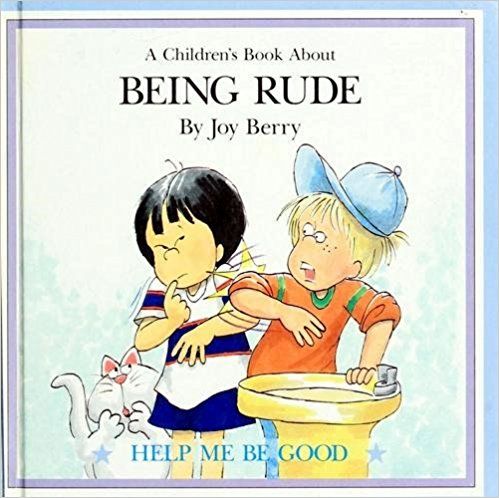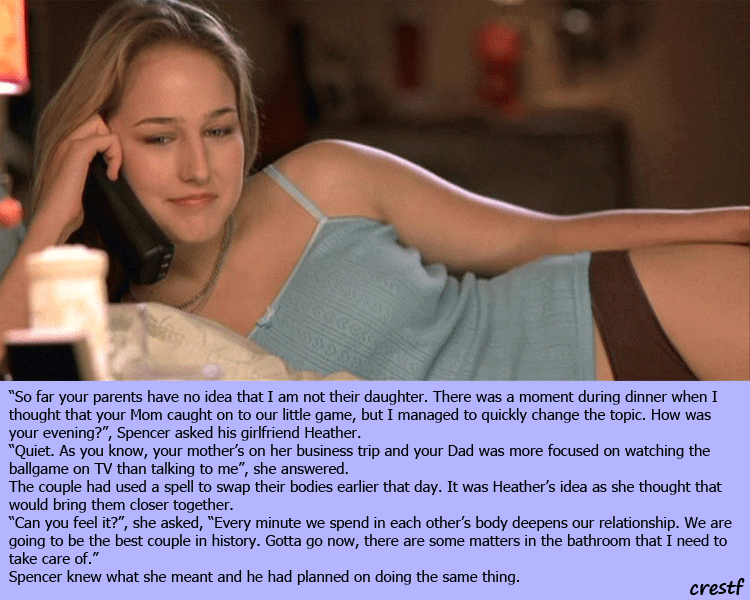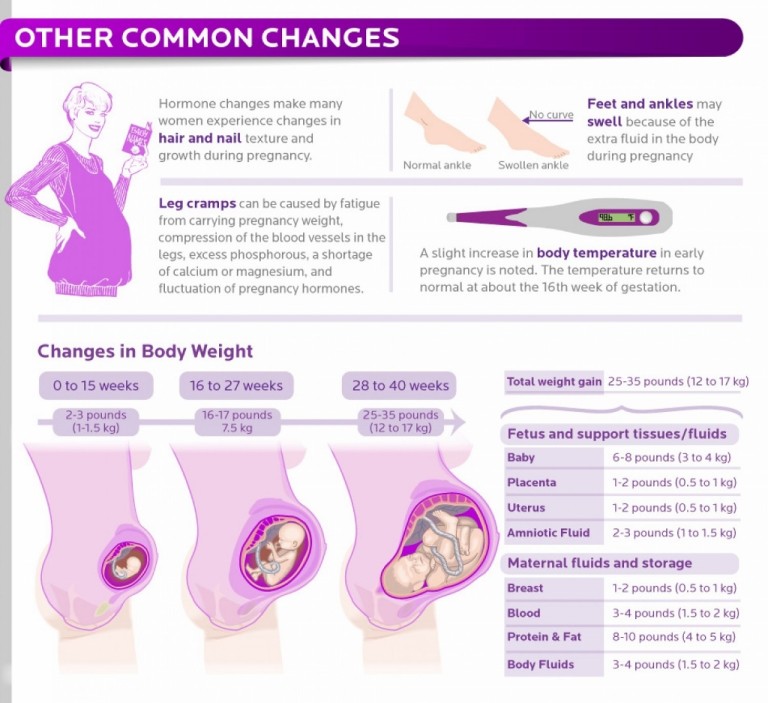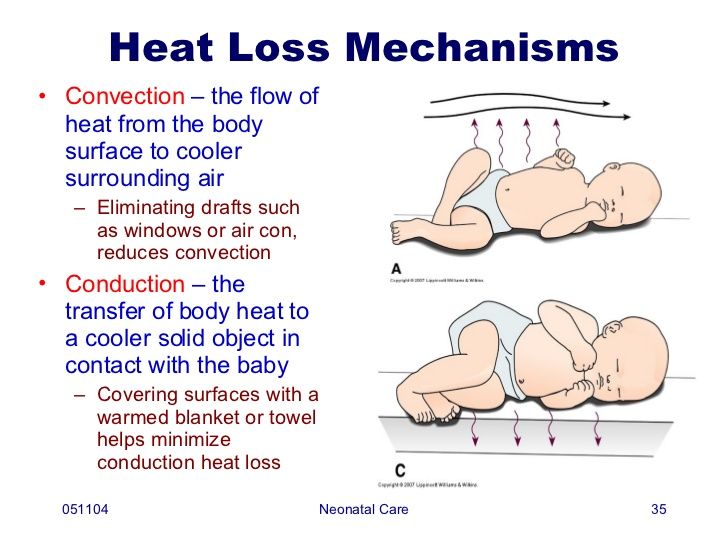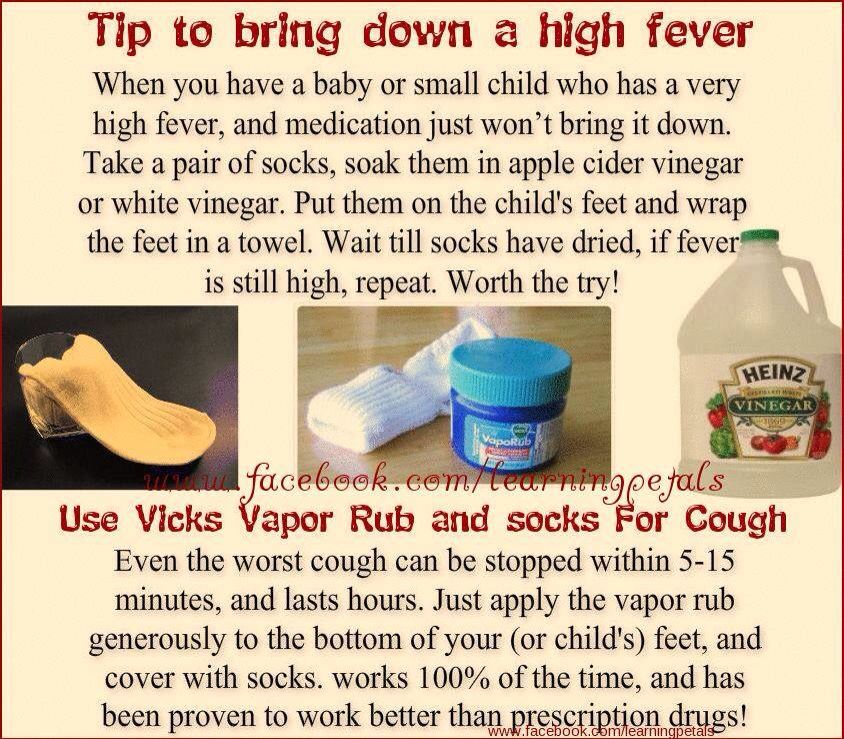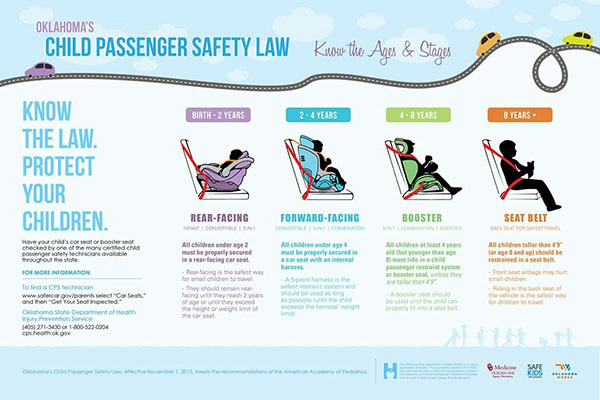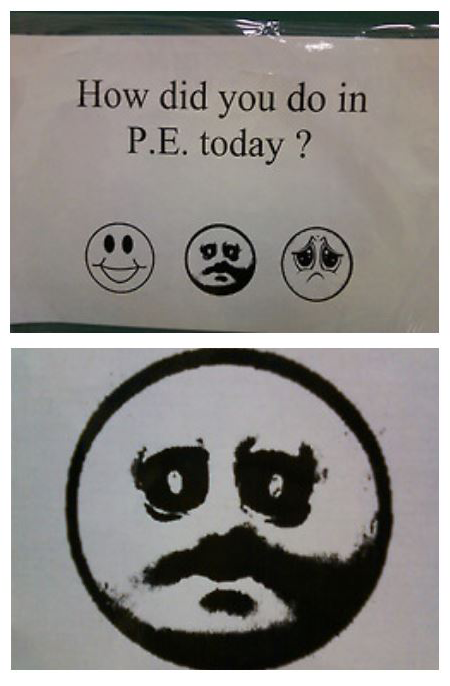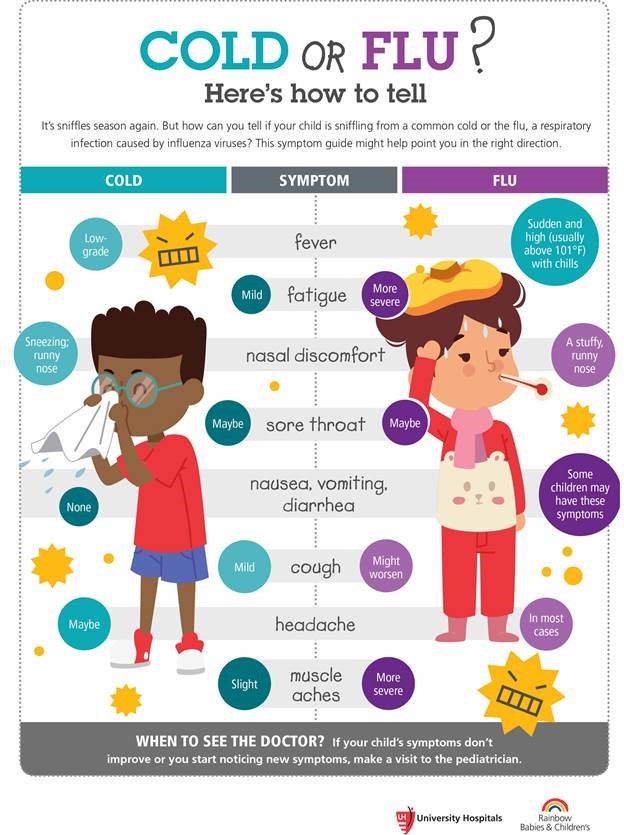How to discipline a child who is disrespectful
10 Tips On How To Discipline An Angry Disrespectful Child
Why is my child angry and disrespectful?
There are two parts to this question – “why is your child angry” and “why is your child disrespectful”.
The second question is easier to answer than the first.
Anger can impact judgment and the perception of who is responsible for the negative events. When a child is angry, there is a sense of certainty that you are in the wrong1 and that perception makes it hard for them to show respect.
In addition, children’s emotional regulating skills are still under development. So it is very difficult for an angry child to act respectfully.
Adults can find handling their children’s anger puzzling, draining, and stressful.
When we were kids, we were taught that being angry was bad, and we were often punished or yelled at for expressing anger.
We were never taught how to deal with or express our anger properly. As a result, we often get angry ourselves when we are confronted with a child’s anger.
On top of that, the disrespect shown by kids at times like this makes it even more difficult for us to control our own emotions.
Now that we know where the disrespect comes from, let’s find out how we can deal with the angry child behavior using a science-based approach.
How to deal with an angry, disrespectful child
1. Do not become angry
Disrespectful child behavior may trigger your own anger.
You may feel like punishing your child or yelling, “How dare you talk to me that way!”
Using disrespectful responses to teach respect rarely works. Rude adults can escalate matters just as well as rude kids can.
You need to be a good role model. Show kids how to stay composed and respectful even in a distressful situation.
When a child is angry, he or she is experiencing big emotions. If you become angry at being disrespected, you ignore the feelings of your child while demanding that they attend to yours.
Children who can’t control their anger need our help to do so.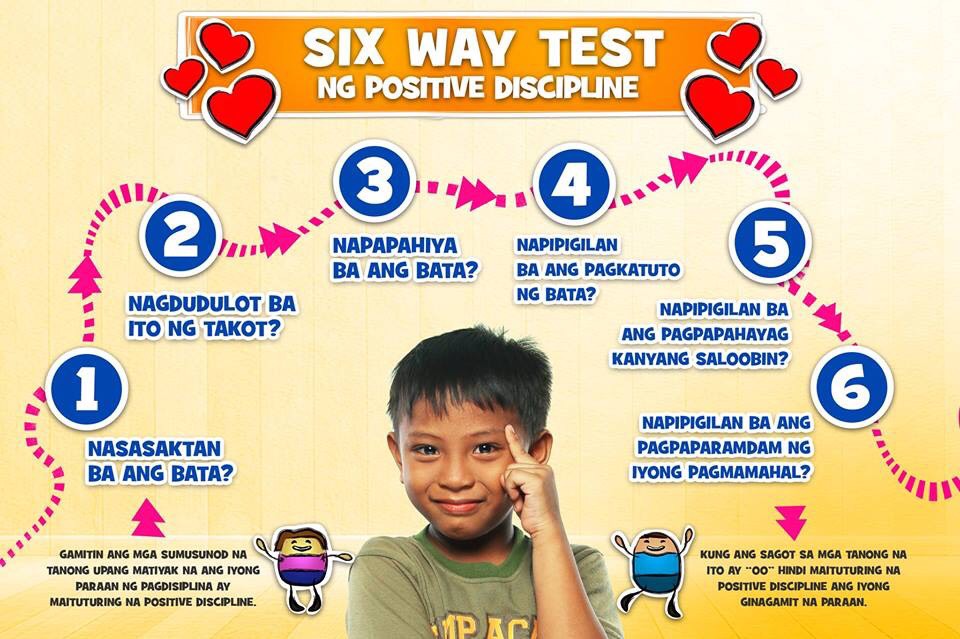 Focus on that rather than our own anger. Doing what’s best for our children is part of good parenting. Putting our own interests ahead of the kids’ is not.
Focus on that rather than our own anger. Doing what’s best for our children is part of good parenting. Putting our own interests ahead of the kids’ is not.
If you cannot stay calm in difficult situations like this, how can you expect a child with a developing brain and less emotional regulation skills to do so?
Also, emotions are contagious2. Your anger will fuel your child’s anger.
So, first and foremost, stay calm.
Parents play crucial roles in teaching their kids how to cope with challenges.
Take a slow, deep, and mindful breath if you have trouble maintaining calm. Clear your mind and focus on helping your child learn to deal with their anger first.
You can always come back and teach them about respect when the storm has passed and everyone is calm.
2. Make sure everyone is safe
In the event of extreme anger, out-of-control children may end up hurting others or themselves.
If your child is showing physical aggression, make sure they are in a safe area and others, especially other kids, are kept at a distance.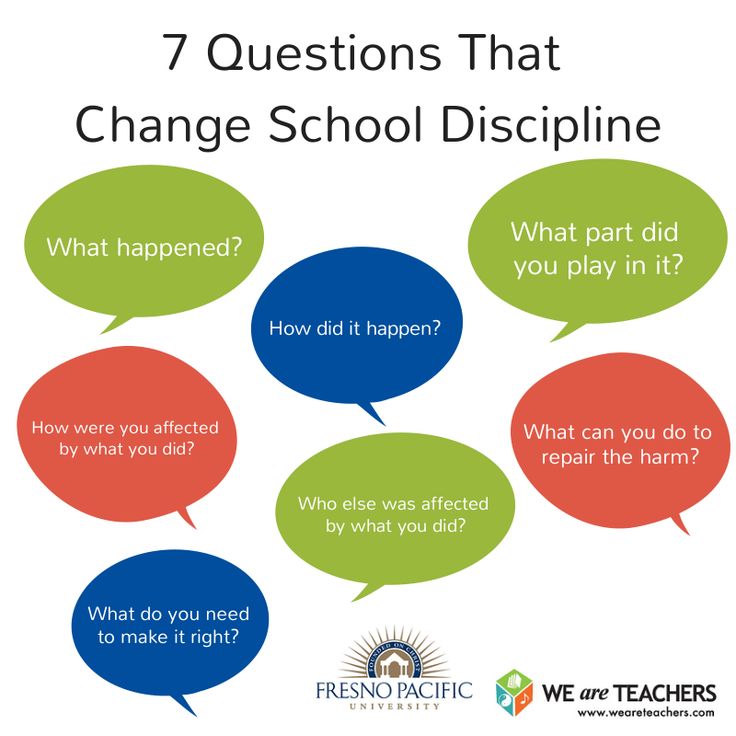
If your child is throwing things or hitting others, you will need to get physical control of them, for their safety as well as others.
Simply hug them tight and say, “I’m sorry. You probably don’t want a hug right now, but I need to keep you and other people safe and help you calm down. Now let’s work on it together. Take a slow, deep breath…”
3. Do not punish
To discipline a child is to teach. It is unnecessary to punish a child to achieve that, nor is it an effective way.
Punishment does not teach your child how to control their anger, and it creates a rupture in your parent-child relationship. It can only make things worse.
Physical punishment like spanking is especially harmful to a child’s development.
Spanking is not only proven to be ineffective at improving a child’s behavior, but it is also linked to 13 adverse outcomes, including aggression, mental health problems, impaired cognitive ability, and substance abuse3.
Some parents insist that punishment is necessary to teach kids about the consequences when a child is defiant and disrespectful.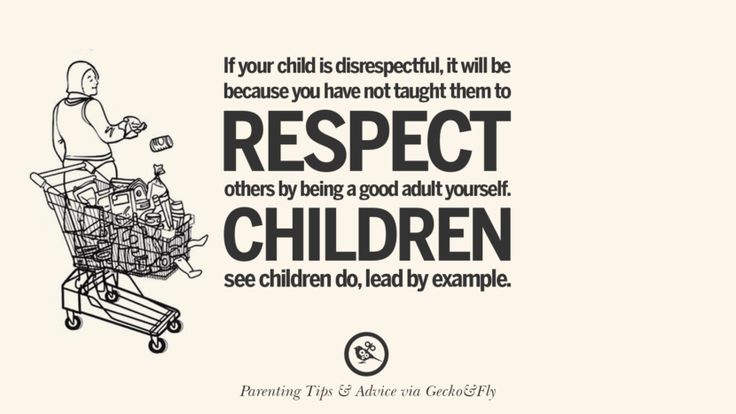
There are mountains of research studies proving that teaching works better than punishing when disciplining kids4.
If a parent knows about this but is still adamant about using punishment, there may be deeper issues. Are they really punishing to teach or to pay back for the anger the child has caused?
4. Acknowledge your child’s anger
Acknowledging your child’s anger means recognizing that your child has feelings, even if it’s one you don’t like. It is also about letting your child accept their own feelings.
Research shows that validating emotions is a better coping strategy than trying to suppress them5. Those who use acceptance as a coping mechanism have a better tolerance for emotional distress6.
To acknowledge your child’s anger, you can simply describe their feelings. “You are feeling very angry. It’s like I don’t care about your feelings.”
When acknowledging, one common mistake is to judge it or try to change it afterward.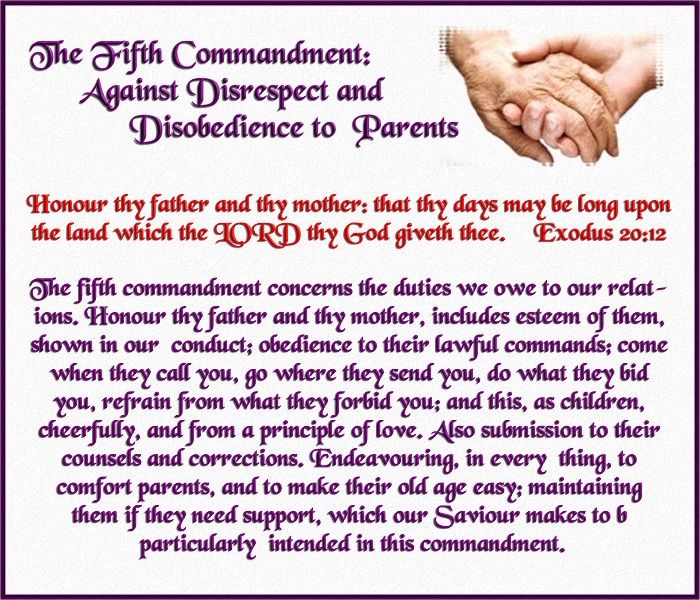 For instance, “You are feeling furious. It’s like I don’t care about your feelings, but that’s not true because… “
For instance, “You are feeling furious. It’s like I don’t care about your feelings, but that’s not true because… “
“But” is horrible.
Don’t add a “But…”.
Feelings are neither right nor wrong. If you try to change them or defend yourself, it’s still about you and you’re not respecting their feelings.
Oftentimes, children are angry not because they don’t get what they want, but because they don’t feel heard. By making it about what you think, you are not really acknowledging their feelings.
So, simply describe how they feel and leave it at that.
5. Ask questions to understand the source of anger
Find out the cause of anger issues in your child.
Sometimes, it’s a little thing that doesn’t go as planned. Sometimes, it is long-term pent-up anger caused by a strained parent-child relationship. Ask probing questions calmly to determine the cause.
“Are you angry because you just wanted a little snack before dinner? You were starving, but I didn’t let you, right?”
Or, “Are you angry because I always ignore what you need?”
When you ask questions, you teach your child to name and describe what they are experiencing so that they learn how to tell you instead of using rude and disrespectful behavior or making snide comments to get their point across.
Children can improve their emotional regulation by learning communication skills7. They will also learn an acceptable way to express their feelings and be heard.
There are other reasons why a child is angry. They may be using anger to avoid painful emotions such as feelings of failure, low self-esteem, loneliness, or anxiety. You can only find out by asking.
Continue probing gently to learn why they are so upset.
6. Offer help
Help them find an alternative solution if the anger stems from an unmet need.
If your kid is angry that they can’t have candy before dinner when they are hungry, suggest munching on crackers while they wait.
As much as possible, let your child choose. Of course, make sure the options are the ones you will allow when your child chooses either.
Anger that stems from a strained relationship between you and your child may need more work.
Offer to talk more with them and learn to listen to their needs rather than rejecting them outright. Work on repairing and building a healthy parent-child relationship.
Work on repairing and building a healthy parent-child relationship.
Help your kid develop a secure attachment by being a responsive parent.
Securely attached kids are better at regulating negative emotions8 and generally have better outcomes in life.
7. Teach emotional regulation skills
Offer to help your child by teaching them how to regulate their emotions.
Experiencing anger hurts, but when a person is experiencing intense emotions, letting go is difficult. Teach your child how to cope before it happens again.
Taking a deep, slow breath or counting backward from 10 is the easiest and most effective.
Talking about how they feel instead of exploding in outbursts is another viable way to deal with their anger.
Helping a child learn self-regulation will prevent them from becoming angry teenagers down the road.
8. Teach how to express objections respectfully
When all the dust has settled and everyone is calm, you can work on teaching them the correct behavior.
We cannot merely tell children what behavior we find unacceptable. We must also teach them appropriate ways to express their objection.
Come up with several ways they can use the next time they encounter such issues.
“Let me give you an example of what some children would do in this situation…”
Then practice! Simply saying, ‘Next time do this, not that” is not enough.
Ask them to practice by saying it out loud to help them commit it to memory.
9. Catch them being good
One of the best ways to motivate respectful behavior and reduce behavioral issues is to catch kids being good.
Reward positive efforts using positive reinforcement. Positive reinforcement, when done right, is a very powerful disciplinary tool that can help stop bad behavior in children.
Be observant and you will find many opportunities throughout the day to give your child positive attention.
Praise them when it happens, “Thank you for waiting for dinner patiently. After soccer practice, you must be hungry”, or “I appreciate you being so polite when asking me to make you a sandwich.”
After soccer practice, you must be hungry”, or “I appreciate you being so polite when asking me to make you a sandwich.”
In addition, remind them to use the coping techniques they have learned when you see signs of disrespect or anger.
10. Be Patient
Be patient with your child. Like any new skill, controlling one’s temper takes time and practice.
Good discipline involves using reasoning and creating an environment of calm and respect.
Bad discipline uses harsh punishment, ridicule, and verbal attacks on the child.
To raise a respectful and conscientious person, they need to develop not only respect for others but also respect for themselves.
It may take years of patient practice, but when we genuinely show care, kindness, and respect, they will eventually learn how to treat others right.
For more on how to teach kids respect, check out this article: What Is Respect – 6 Highly Effective Ways To Teach Kids Respect
Final Thoughts On Angry Disrespectful Kids
Being able to recognize one’s emotions and regulate them properly is a learned skill that children are not born with.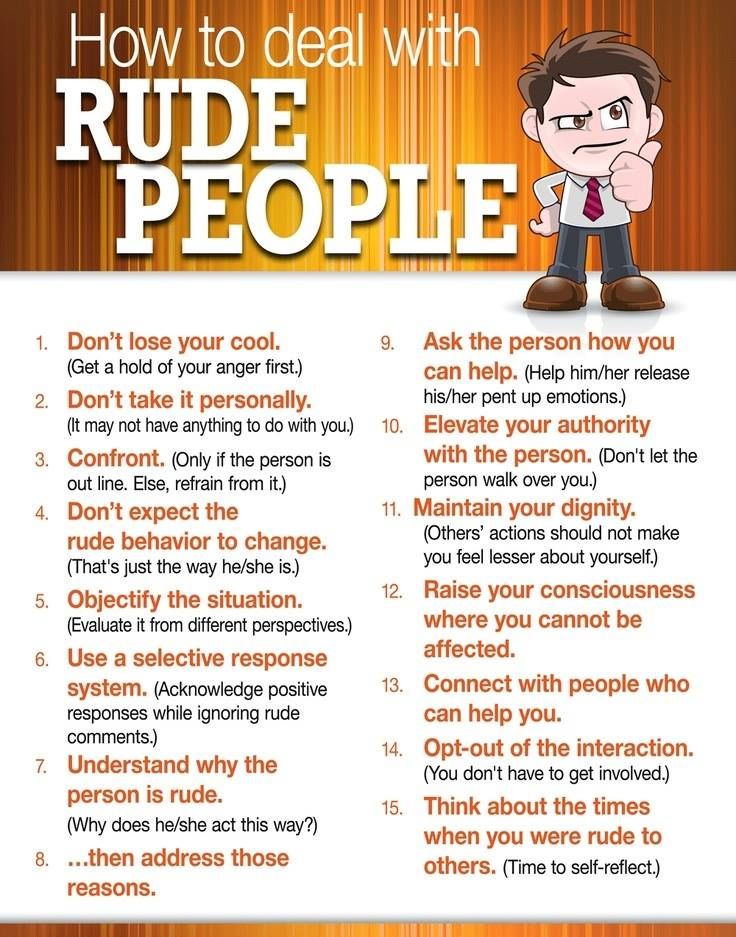
Having a child who shows disrespectful behavior doesn’t automatically mean you are a bad parent.
Being an effective parent also doesn’t mean having perfect children.
It means you are doing the best you can to connect with them and help your child grow into a healthy, well-adjusted, and thriving person.
Also See: Parenting
References
-
1.
Lerner JS, Keltner D. Beyond valence: Toward a model of emotion-specific influences on judgement and choice. Cognition & Emotion. Published online July 2000:473-493. doi:10.1080/026999300402763
-
2.
Hatfield E, Cacioppo JT, Rapson RL. Emotional Contagion. Curr Dir Psychol Sci. Published online June 1993:96-100. doi:10.1111/1467-8721.ep10770953
-
3.
Gershoff ET, Grogan-Kaylor A. Spanking and child outcomes: Old controversies and new meta-analyses.
 Journal of Family Psychology. Published online 2016:453-469. doi:10.1037/fam0000191
Journal of Family Psychology. Published online 2016:453-469. doi:10.1037/fam0000191 -
4.
Krevans J, Gibbs JC. Parents’ Use of Inductive Discipline: Relations to Children’s Empathy and Prosocial Behavior. Child Development. Published online December 1996:3263. doi:10.2307/1131778
-
5.
Alberts HJEM, Schneider F, Martijn C. Dealing efficiently with emotions: Acceptance-based coping with negative emotions requires fewer resources than suppression. Cognition & Emotion. Published online August 2012:863-870. doi:10.1080/02699931.2011.625402
-
6.
Hofmann SG, Heering S, Sawyer AT, Asnaani A. How to handle anxiety: The effects of reappraisal, acceptance, and suppression strategies on anxious arousal. Behaviour Research and Therapy. Published online May 2009:389-394. doi:10.1016/j.brat.2009.02.010
-
7.
Roben CKP, Cole PM, Armstrong LM. Longitudinal Relations Among Language Skills, Anger Expression, and Regulatory Strategies in Early Childhood.
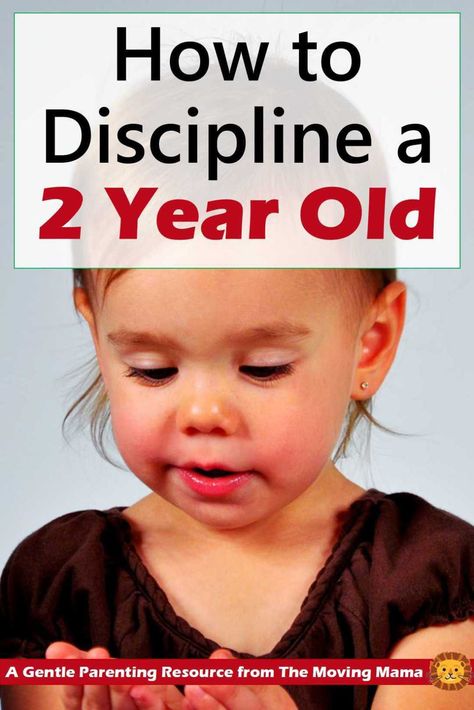 Child Dev. Published online December 20, 2012:891-905. doi:10.1111/cdev.12027
Child Dev. Published online December 20, 2012:891-905. doi:10.1111/cdev.12027 -
8.
Brumariu LE. Parent-Child Attachment and Emotion Regulation. New Directions for Child and Adolescent Development. Published online June 2015:31-45. doi:10.1002/cad.20098
About Pamela Li
Pamela Li is an author, Founder, and Editor-in-Chief of Parenting For Brain. Her educational background is in Electrical Engineering (MS, Stanford University) and Business Management (MBA, Harvard University). Learn more
View all posts by Pamela Li | Website
How to Handle Disrespectful Children
A recent viral video of a group of pre-teen kids bullying and berating an elderly bus monitor showed us just how pervasive it is in society for children and teens to be rude and disrespectful to adults. Sadly, this kind of behavior from kids is everywhere, and it only seems to be getting worse.
Parenting is not a popularity contest. You need to be in control and you need to set some limits.
Your child is not your partner or your peer.
Some of it can be chalked up to the fact that our culture—movies, music, internet sites and television—often glorifies disrespectful, crude or even cruel behavior. Kids are taught by pop culture to think it’s cool to talk back and put down parents and teachers.
Added to this dynamic is the fact that Baby Boomers and Gen Xers are generally less authoritarian and more submissive than prior generations were, and therefore much less likely to say no to their kids.
On top of this, stress levels are extremely high—in most households, both parents are working and might be worried about jobs, bills and other financial or personal strains. Many (if not most) parents are simply unable to devote the time and attention that it takes to sit down and thoroughly handle every situation that comes up with their kids.
When Did My Child Turn into a Pill?
Disrespectful behavior—cursing, yelling, arguing, ignoring you, refusing requests, name-calling—is a kind of wakeup call to parents.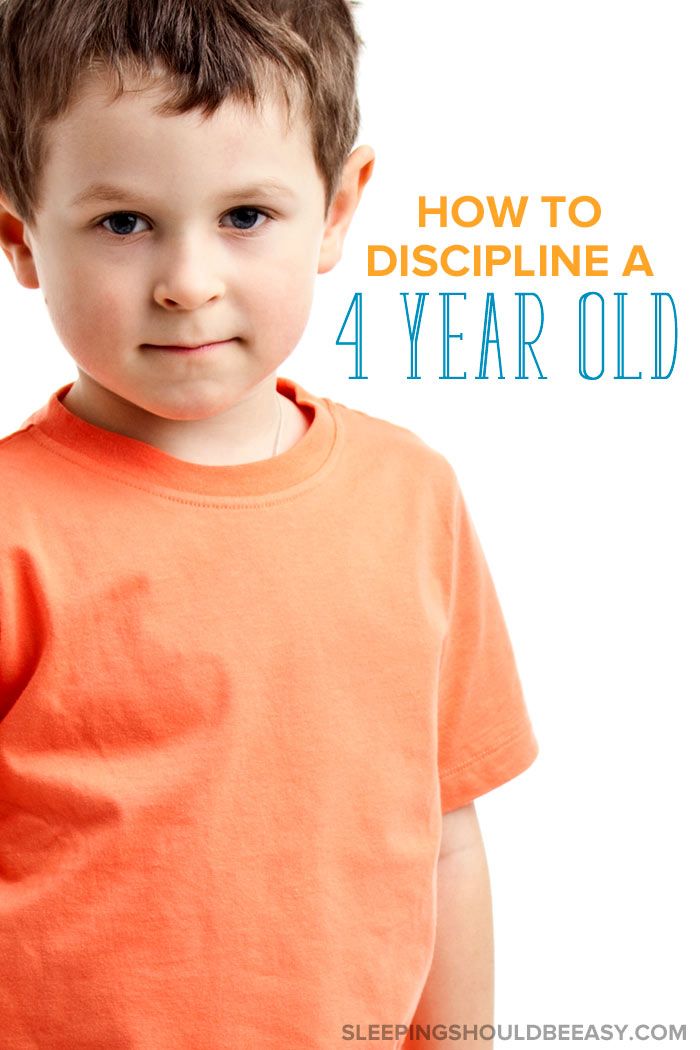 It’s telling you that you need to be in control of the situation more and set better limits. This is a process that happens over time. Once you change how you respond to your kid’s disrespectful behavior, it doesn’t mean that their behavior is going to change right away. It takes time and you will need to stick with it.
It’s telling you that you need to be in control of the situation more and set better limits. This is a process that happens over time. Once you change how you respond to your kid’s disrespectful behavior, it doesn’t mean that their behavior is going to change right away. It takes time and you will need to stick with it.
Before I tell you how to handle disrespectful behavior in your child, let’s talk a little about what’s going on with them.
If your kid has suddenly started talking back, rolling her eyes and copping an attitude, as annoying and difficult as it is to deal with, disrespectful behavior is actually a normal part of adolescence. In fact, if it shows up all of a sudden, it probably is just adolescence—your child’s way of pushing away from you and “individuating”, or working at separating from you and becoming their own person. This is a painful thing to do—not that most adolescents would admit it!
The truth is, it’s difficult to push away from your parents and move toward adulthood.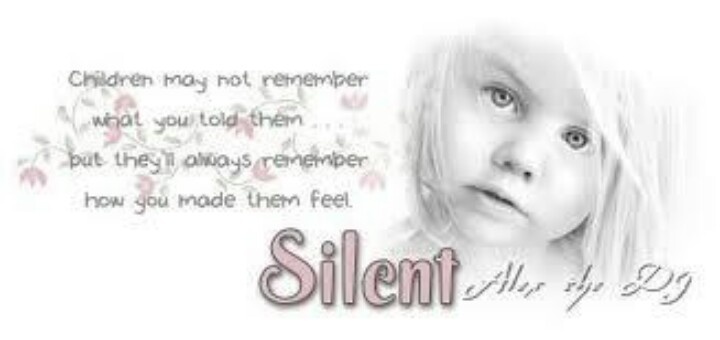 Sometimes it’s easier for kids just to be rude and disrespectful—but of course, that’s not acceptable behavior!
Sometimes it’s easier for kids just to be rude and disrespectful—but of course, that’s not acceptable behavior!
Disrespectful behavior often comes down to kids having poor problem-solving skills and a lack of knowledge about how to be more respectful as they pull away. Often when kids separate from you they do it all wrong before they learn how to do it right. Finding one’s self is a lifelong process, and your job as a parent is to teach your child how to behave appropriately and to be respectful toward others as they grow up.
If your child has been disrespectful most of their life and it’s not just something that came on primarily in adolescence, then it’s much harder to handle. A change needs to happen in how you manage their behavior, and change is always tough. Even if you haven’t been good at setting limits or teaching your child to be respectful along the way, understand that you can decide to parent differently at any point in your life.
When my son was in high school, he asked to go to a concert and we said “no” because, among other things, he and his friends were planning to drive out of state for it and sleep in his car afterward.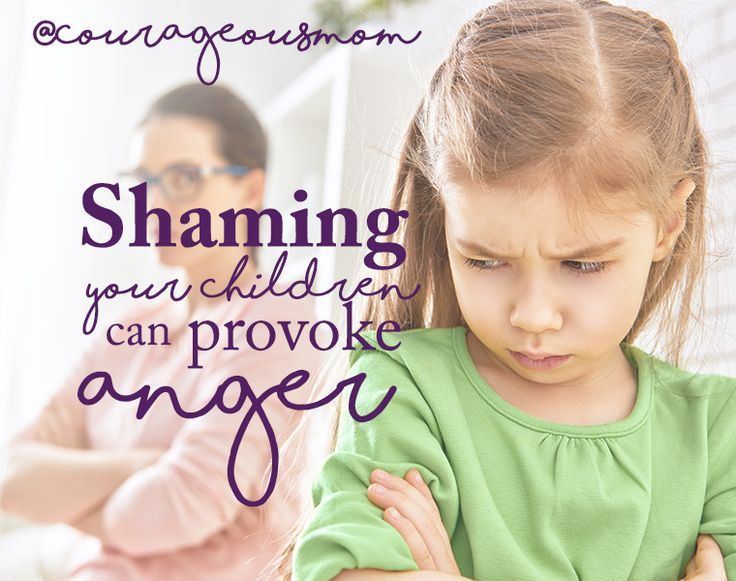 Our son was rude and disrespectful as he walked away from us and yelled “I hate you!” before slamming his bedroom door. We took his car keys away because we didn’t want him to drive until we’d resolved the issue. We said, “When you’re calm, come downstairs and we’ll talk about it.” Later we sat down with him and explained that he didn’t have to like what we’d decided and that it was okay to be angry with us, but it was not okay to show that kind of behavior. This was a painful incident for all of us, but we made sure not to get pulled into a power struggle with him over it.
Our son was rude and disrespectful as he walked away from us and yelled “I hate you!” before slamming his bedroom door. We took his car keys away because we didn’t want him to drive until we’d resolved the issue. We said, “When you’re calm, come downstairs and we’ll talk about it.” Later we sat down with him and explained that he didn’t have to like what we’d decided and that it was okay to be angry with us, but it was not okay to show that kind of behavior. This was a painful incident for all of us, but we made sure not to get pulled into a power struggle with him over it.
It’s inevitable that at times our kids are going to be angry at us, and that we’re going to set some limits that they don’t like. But that’s okay—that just means you’re doing your job as a parent. Here are 5 rules that will help you handle disrespect:
1. Don’t Take It Personally
I know this is a hard one, but try not to take what your child is saying or doing personally. This behavior really is all about them individuating, and not about you.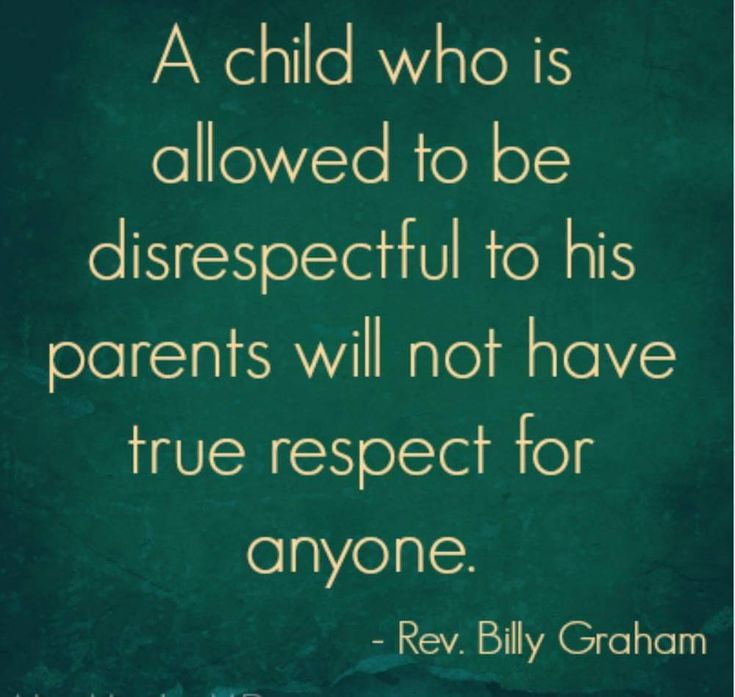
Instead of allowing yourself to feel hurt or angry (which is a surefire way to get pulled into a power struggle), be clear and direct with your child. If they’re being mildly sassy and starting to push some boundaries, you can say, “Don’t talk to me that way, I don’t like it,” and then turn around and walk away. Tell them the behavior is wrong and then disengage from them.
If your child’s behavior warrants a consequence, you can say, “It’s not okay to call me names or swear when I tell you can’t go to your friend’s house. I’m taking your cell phone for two hours. During that time, you need to show me you can behave respectfully to people in this house. If you swear or are rude again, the two hours will start over.”
Remember, it doesn’t matter if your child likes you right now. This is about doing the right thing, and asking yourself, “What do I want to teach my child?”
Parenting is not a popularity contest. You need to be in control and you need to set some limits.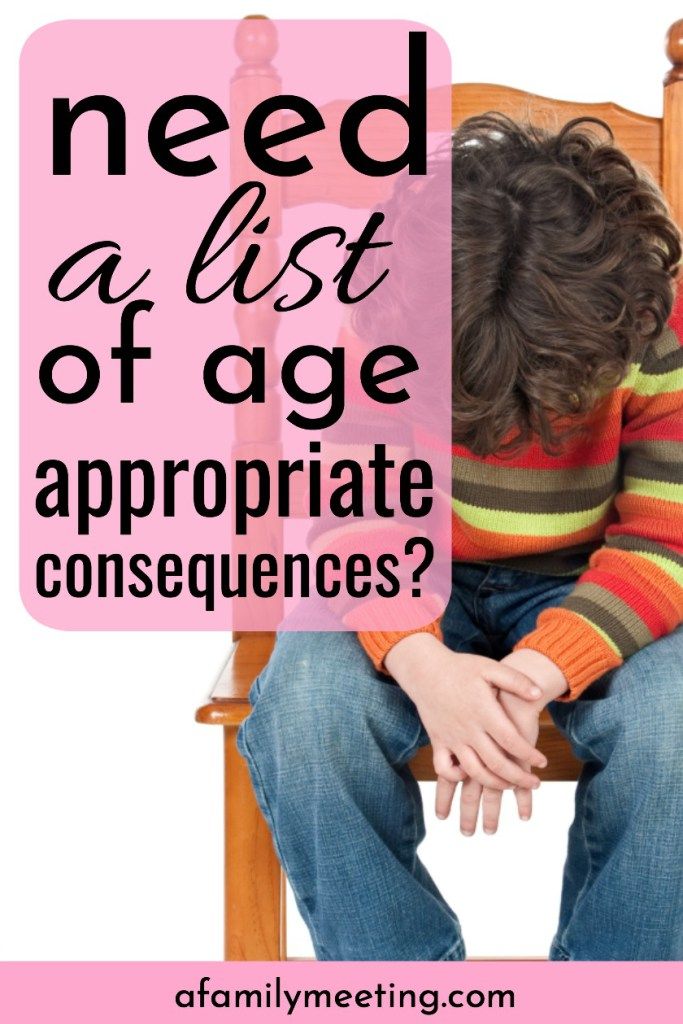 Your child is not your partner or your peer. Your role as parent is vital—you are in charge and your child is relying on you to lead the way.
Your child is not your partner or your peer. Your role as parent is vital—you are in charge and your child is relying on you to lead the way.
2. Be Prepared
Know that some rude or disrespectful behavior is normal in adolescence, and be prepared for it. If it’s already happened once, you need to anticipate that it may happen again and then plan what you’re going to do about it. State your limits, then turn around and walk away. Remember, you don’t have to attend every fight—or power struggle—your child invites you to.
If your child has been extremely disrespectful because they really haven’t had limits around that behavior, this will take real work. Once you’ve set a limit and responded appropriately to the disrespect, again, do not get pulled into the power struggle. If you can do this once, it makes it easier to do it again. Just say to yourself, “As a parent I’m doing the right thing by setting these limits.”
Where should you draw the line with disrespectful behavior? I think every parent has a different line for their kids, and you’re going to know what that line is.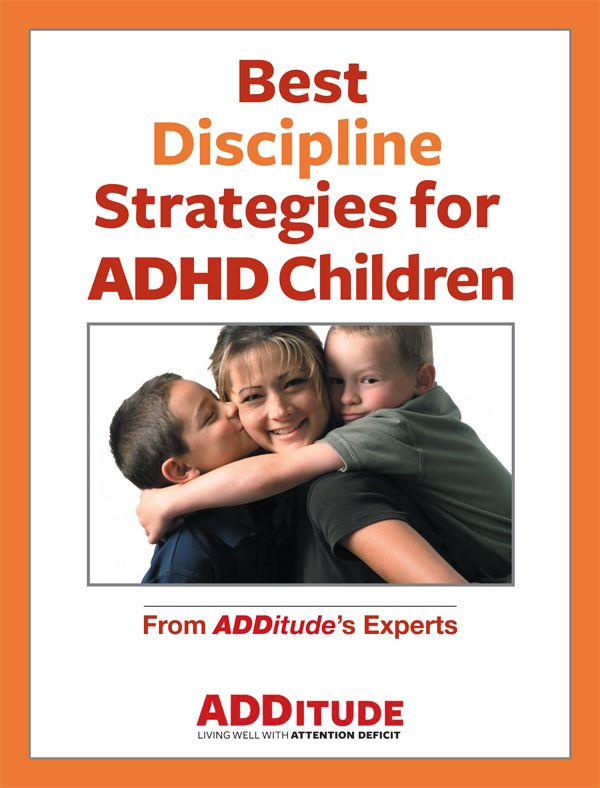 Plan ahead and let your child know. You can say, “You swore at me the last time I said you couldn’t go to a concert. I don’t want you to do that again. If you do, there will be a consequence.” If there is an incident, be sure to talk with them once everybody cools down. Set limits when everyone is calm rather than in the heat of the moment.
Plan ahead and let your child know. You can say, “You swore at me the last time I said you couldn’t go to a concert. I don’t want you to do that again. If you do, there will be a consequence.” If there is an incident, be sure to talk with them once everybody cools down. Set limits when everyone is calm rather than in the heat of the moment.
3. Avoid Power Struggles at All Costs
Once you’re embroiled in a power struggle, you’ve lost. But what do you do when your kid is swearing in your face, calling you names, ignoring you or trying to boss you around? That’s where that internal dialogue is so important. Don’t take it personally.
Your job is to parent your child and teach him to behave differently. I think most of us have triggers when our kids are disrespectful and then we end up getting sucked into arguments with them. If your child has drawn you into a fight with disrespectful behavior in the past, be prepared that he will try to do it again. And then know what you’re going to do next time.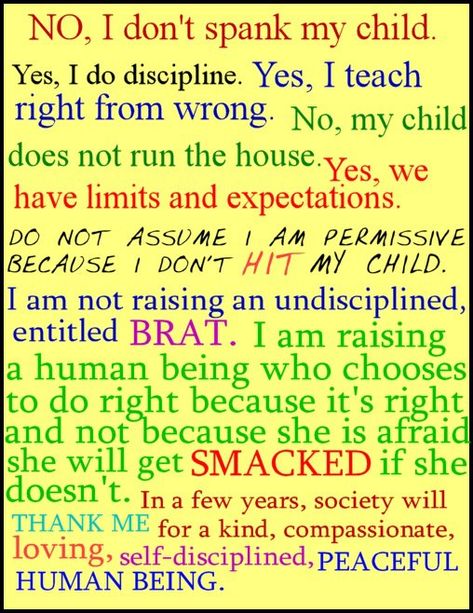 Are you going to set a limit? Are you going to make your statement, give the expectations and not get caught up in your child’s words? Plan ahead. You might decide to give a consequence for the behavior and then have a follow-up discussion about what happened.
Are you going to set a limit? Are you going to make your statement, give the expectations and not get caught up in your child’s words? Plan ahead. You might decide to give a consequence for the behavior and then have a follow-up discussion about what happened.
The goal is that you teach your child to behave differently. Let’s face it, there’s nothing worse than going through life treating people badly—it won’t help your child function in the real world if he’s allowed to be rude and disrespectful. Kids have to get the message.
4. Be Determined
If you want things to be different, you’ll have to make up your mind to do them differently and stick with it. It’s hard at first, but it’s really rewarding when things begin to change. James and I used to jokingly say that kids are like uncivilized little barbarians—it’s our job, as parents, to teach them a more respectful way to deal with problems. Decide today that you are going to start doing things differently.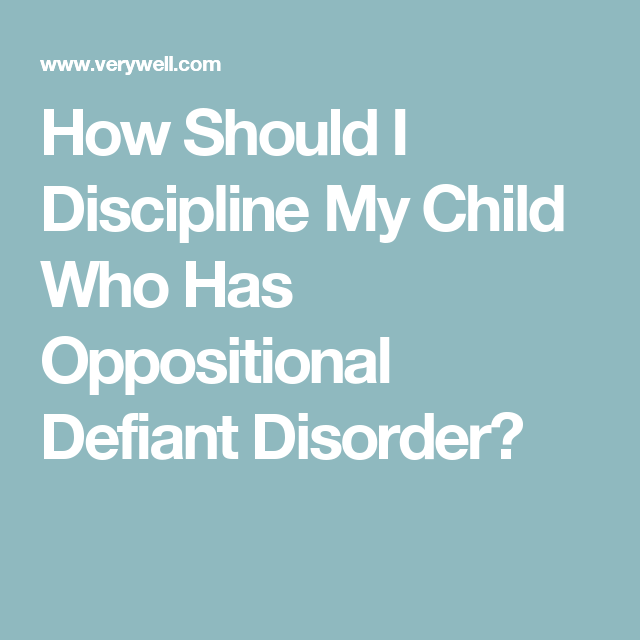
5. Be a Teacher and Coach
It’s your job to teach your kids to behave more respectfully and manage frustration better. The three crucial roles for you to play as a parent are Teacher, Coach and Limit Setter. We teach them how to behave, we coach them (and encourage them) when they get it right, and we set limits when they get it wrong. These three roles are really the key to being an effective parent.
Remember, the goal is for kids to be able to function in the real world and go on to be responsible adults who can live on their own. We basically want all the things for our kids that our parents wanted for us: to be financially and emotionally able to function successfully on their own. It’s our job as parents to teach and guide our kids to become more functional. If they don’t learn how to be respectful to others growing up, it’s much harder to learn as an adult. Change is hard but it can happen at any time. When you want things to be different, you just have to do some work.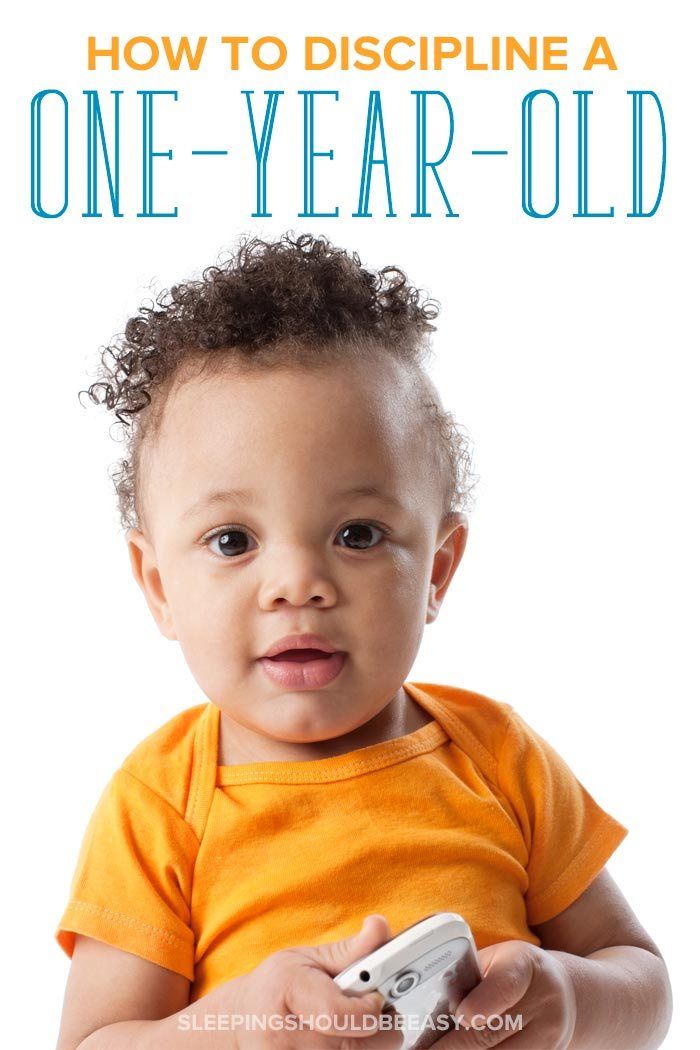
Related Content:
Do Your Kids Disrespect You? 9 Ways to Change Their Attitude
Empowering Parents Podcast: Apple, Spotify, Google, Stitcher
If children act insolently and disrespectfully (Dobson)
My six-year-old son suddenly began to act insolently and disrespectfully at home. For example, he can say: “Get out of here.” When I ask him to take out the trash, he calls me rude names, gets angry. I feel it's important to let him vent his emotions, so I don't stop those outbursts. Do you approve of my actions?
By no means can I agree with them. Your son has consciously begun to act defiant and has decided to see how far you let him go with his behavior. If this situation is not stopped in time, then it will gain strength day by day, the boy will show more and more disrespect for any of the people around him, and you will have to wait for much more daring tricks, especially when the teenage period comes. Of all the forms of behavior for which a child should be punished, it is this kind of behavior that should be mentioned first. It represents a direct attack on the role of parents as its leaders and is directed against them as individuals. This is especially dangerous when the child is well aware that he is behaving in relation to them is unacceptable.
It represents a direct attack on the role of parents as its leaders and is directed against them as individuals. This is especially dangerous when the child is well aware that he is behaving in relation to them is unacceptable.
As for the need to let out "anger fumes", sometimes a child can be allowed to do this, but without him offending anyone. For example, a child throws an accusation to his mother in tears: “You were dishonest with me, you put me in a stupid position in front of my friends.” It needs to be understood and responded to calmly and sincerely. But parents should never let a child say things like, "You're so stupid, I want you to leave me alone!" In the first case, the statement sounds like a sincere expression of disappointment and resentment on a specific occasion. In the second - as a desire to strike a blow at the dignity and authority of parents. My opinion boils down to the fact that in the second situation, damage is done to representatives of both generations.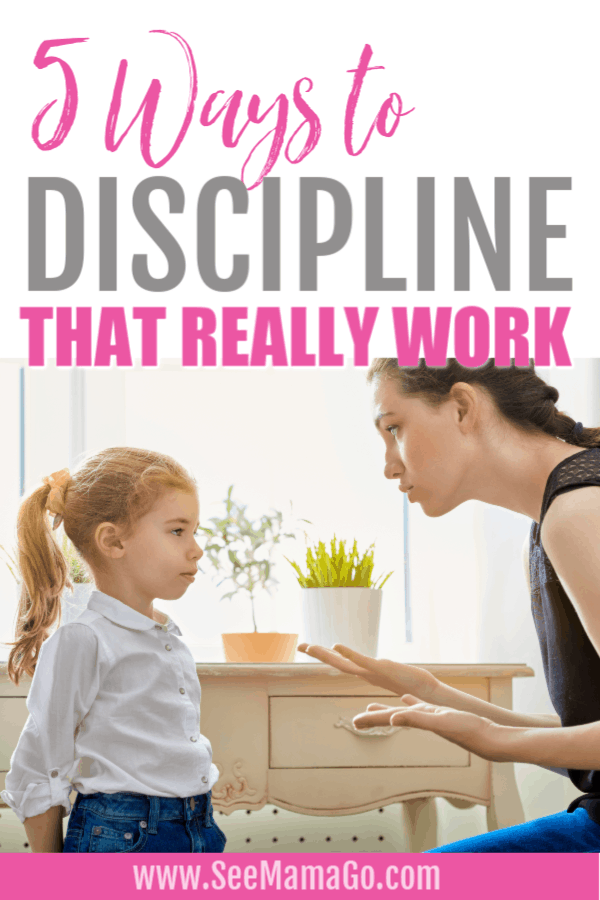 Such behavior must be stopped.
Such behavior must be stopped.
Our neighborhood children misbehave with each other and disrespect adults. This makes me sad, but I don't know if I can intervene. I'm not sure I have the right to teach the children of my neighbors. How should I behave in this situation?
Neighbors should learn to talk to each other about their boys and girls. This requires a certain amount of skill. There is no more effective way to quickly anger a mother than another woman trying to criticize her precious child. This is a very sensitive topic of conversation. That is why neighborhood relationships usually do not encourage the formation of at least a weak "feedback" between parents to discuss the behavior of their children. And boys and girls, well aware of the lack of relationship between adults, take advantage of these invisible barriers. Every neighborhood needs a mother who has the courage to say, “I want to be told everything my child does when she gets out of her own home.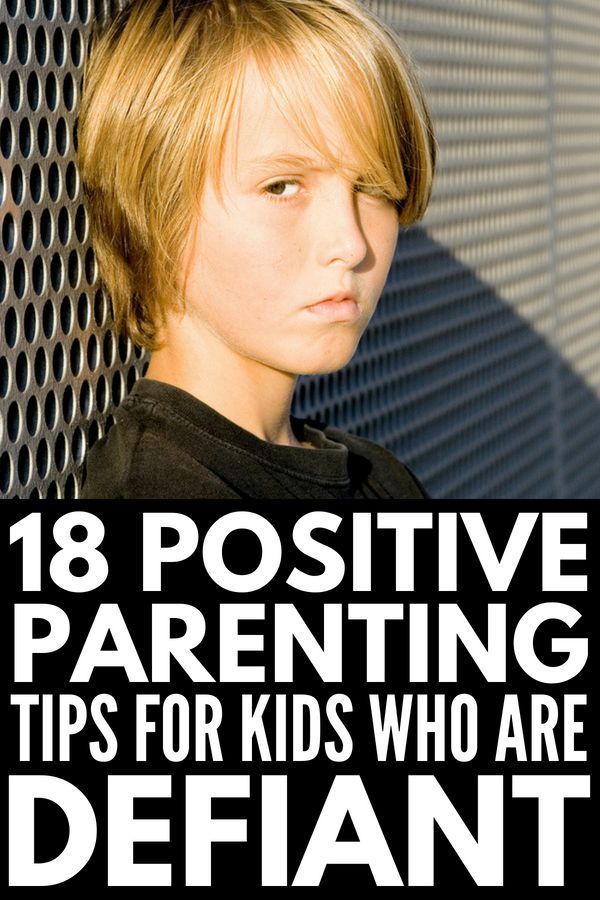 If he misbehaves with other children, then I would like to know about it. If he is impolite to adults, please tell me so. I don't think it's some kind of slander. I have nothing against you coming to me. I hope I can share my impressions with regard to your children. None of our sons and daughters can be considered perfect, and we can better understand the problems of their upbringing if we talk to each other about our children openly, as adults.
If he misbehaves with other children, then I would like to know about it. If he is impolite to adults, please tell me so. I don't think it's some kind of slander. I have nothing against you coming to me. I hope I can share my impressions with regard to your children. None of our sons and daughters can be considered perfect, and we can better understand the problems of their upbringing if we talk to each other about our children openly, as adults.
Please advise how to react if a child says, “I hate you!” when he is angry and irritated!
If my child, at the moment of his extreme irritation, suddenly began to shout that he hates me, then probably, if this happened for the first time, I would wait until he cools down and then talk to him in a spirit of goodwill and sincerity. I would say, “Charlie, I understand that you were very upset this afternoon when we had a disagreement. I think you and I have something to talk about and find out what you want. All children get angry at their parents from time to time, especially when the child feels they are being treated unfairly. I understand that you were upset and annoyed, and I regret that we came to such a collision. But what happened cannot justify your saying that you hate me. You must have noticed that I never told you that I hated you, no matter how upset I was by your behavior. And I can't have you say things like that to me. When people treat each other with love, like you and I, then they do not have a desire to cause mutual pain. Your statement about hating me caused me the same pain that you would feel if I said such words to you. You can always just tell me if something makes you angry. I will listen to you carefully. If I am wrong in something, then I will try to do everything in my power to eliminate the causes; which made you angry. I really want you to calmly tell me everything that worries you, even if it is connected with some unpleasant situation. But understand and remember that I will never allow you to scream, insult and pour out your anger on me. If you behave so indecently, I will have to punish you.
I understand that you were upset and annoyed, and I regret that we came to such a collision. But what happened cannot justify your saying that you hate me. You must have noticed that I never told you that I hated you, no matter how upset I was by your behavior. And I can't have you say things like that to me. When people treat each other with love, like you and I, then they do not have a desire to cause mutual pain. Your statement about hating me caused me the same pain that you would feel if I said such words to you. You can always just tell me if something makes you angry. I will listen to you carefully. If I am wrong in something, then I will try to do everything in my power to eliminate the causes; which made you angry. I really want you to calmly tell me everything that worries you, even if it is connected with some unpleasant situation. But understand and remember that I will never allow you to scream, insult and pour out your anger on me. If you behave so indecently, I will have to punish you.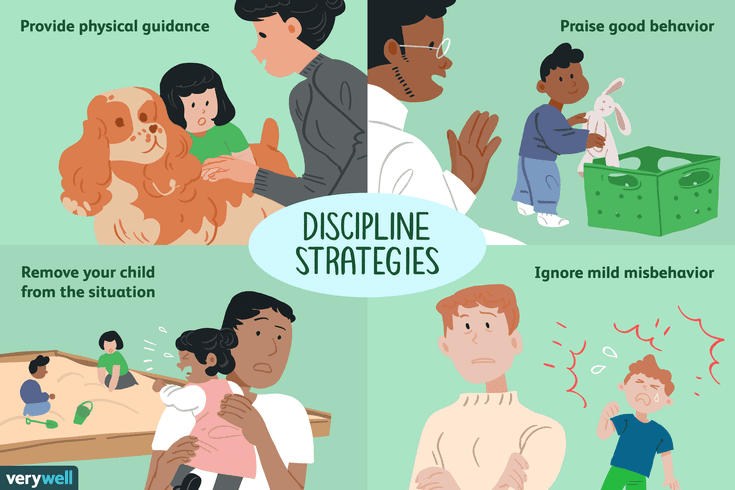 Do you want to tell me something? If not, then hug me, because I love you so much!
Do you want to tell me something? If not, then hug me, because I love you so much!
My goal would be to remove the effect of the child's negative emotions, and in such a way as not to indulge in manifestations of cruelty, disrespect and the desire to control me.
What place in a child's mind should a feeling of fear in relation to his parents occupy?
There is a well-defined distinction between healthy, perfectly acceptable "reverence" and destructive fear. The child should have a clear idea of the consequences of his attempts to defy his parents. But, of course, it is unacceptable that a child, having lost sleep, lies at night in fear of parental hostility or cruelty. One rather harsh example will perhaps help illustrate the difference between these forms of fear. A highway with heavy traffic is a dangerous place to walk. Indeed, only a potential suicide would dare to enter the fast lane at six o'clock on a Friday evening, when everyone is rushing home or out of town from work. I, for one, am not stupid enough to test the danger first hand, as I have a healthy, normal fear of a fast moving car. As long as it doesn't occur to me to do stupid things and be weird, I have no reason to worry. This source of danger does not pose a threat to me, since it can only arise in the case of my willful willfulness and violation of the rules. And I would like my child to proceed in relations with me from the same reasonable position. As long as he does not openly and deliberately challenge me, he can live in complete safety. He will not need to urgently hide or flinch when I suddenly decide for some reason to scratch the back of my head. He should not feel fear because of the assumption that I will want to make fun of him or treat him somehow unkindly. He can enjoy the feeling of complete safety and security, but ... until he decides to show self-will. Then he will have to face the consequences of such behavior.
Sometimes I feel like I'm overreacting to my child's minor misbehavior, and other times I'm not able to properly respond to deliberate defiance.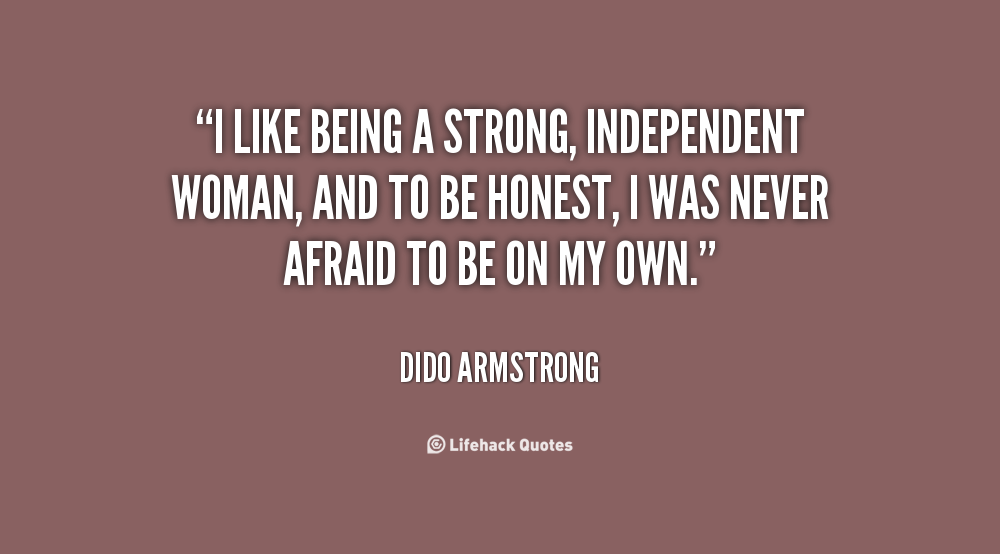 Please advise when it is not necessary to pay attention to the bad behavior of the child, and when it is necessary to fight back?
Please advise when it is not necessary to pay attention to the bad behavior of the child, and when it is necessary to fight back?
The ability to read your child's thoughts and feelings is an art that can only be learned by parents who take the time to understand their children's behavior. The key to the competent performance of parental duty lies, first of all, in the ability to put oneself in the place of a child, and in such a way that he sees the environment with his eyes and feels everything that he feels. When a child feels lonely, he needs the company of his mother or father. When stubbornness and rebelliousness flare up in him, he needs their help. When he is afraid of something, he needs to feel under the protection of adults. When something arouses his curiosity, he needs to be calmly explained to him. When he is happy, he seeks to share his fun and joy with those he loves.
Parents who are able to understand their child's feelings are almost always able to correctly respond to his needs and meet his true needs. When this level of educational process is reached, this kind of education can be considered a high-class art. But this requires the greatest wisdom, patience, devotion and love.
When this level of educational process is reached, this kind of education can be considered a high-class art. But this requires the greatest wisdom, patience, devotion and love.
Child's disrespectful attitude towards parents - Child development
Sometimes parents complain that their children treat them disrespectfully: “My child often snaps insolently, yells at me, and sometimes even insults me. The more I punish him, the worse he behaves.”
First of all, parents need to understand that children learn from the examples they encounter in everyday life, and above all in their families. Too many parents expect their children to be respectful when they themselves are disrespectful. Punishments don't help because they have an element of disrespect.
Advice to parents
- Tell your child in a calm, respectful tone, “I'm sorry for speaking and behaving with you in an inappropriate way. I don't want to upset you, hurt you, and I don't want you to do the same.
 Let's start all over again?"
Let's start all over again?" - Say: “You are obviously very upset right now. It really upsets me myself when you talk like that. Let's calm down, take a breath and pause for a while. We can talk later when we feel better."
- Another possibility is to use the following phrase: “When you talk in such a disrespectful tone, I cannot continue the conversation. I'll go to my room. I love you and want to listen to you when you are ready to speak respectfully to me. I respect myself enough to shy away from such treatment."
- Quietly leave the room without saying another word. If your child follows you, go for a walk or take a shower. After the child calms down, ask him the question: “Are you ready to talk?”.
- If you're not too upset, try hugging your child. Sometimes in this situation, children are not ready to accept hugs. In other cases, hugs change the atmosphere towards love and respect.
How can I prevent similar problems in the future?
Be prepared to look at your attempts to teach your child to respect you, accompanied by your disrespect for him. So, many parents were shocked when they accidentally heard the tone in which the children spoke to their dolls and toys, because they very accurately imitated the way their parents spoke to them.
So, many parents were shocked when they accidentally heard the tone in which the children spoke to their dolls and toys, because they very accurately imitated the way their parents spoke to them.
If parental disrespect is a constant problem, put it on the family meeting agenda. Sometimes a discussion is enough to encourage children to work together to solve a given problem.
Teach the children about the three steps for dealing with relationship problems, and use them yourself when you make a mistake and disrespect your children. The first step is to acknowledge the error or problem itself. The second step is reconciliation. These two steps will help you move on to the third - working together to solve the problem. Trying to work on a solution before admitting the mistake and reconciling will be completely unproductive.
What can children learn?
Children will be able to learn that it is not good to allow disrespect for others, and also to consider it acceptable in relation to themselves.
Final Tips for Parents
Above all, parents should set a good example for their children and act proactively. Of course, it may seem very desirable to punish a child in retaliation for hurting your feelings, but remember that this model involves disrespect.
If you fail to prevent your child's disrespectful behavior and you react badly to it, use these three steps to deal with such problems and apologize in a calm manner. Chances are your child will copy your behavior.
Success Story
One mom who followed the tips above says, “Recently, I almost suffocated with overflowing happiness because my 15-year-old daughter came to me and said, “Mommy, are you planning to do laundry today? things in the washing machine? I would give you my jeans. Or should I put them down and turn on the car myself?”. It was an incredibly respectful approach compared to the usual: “Mom, wash your jeans by the time I get home from school!!!”.